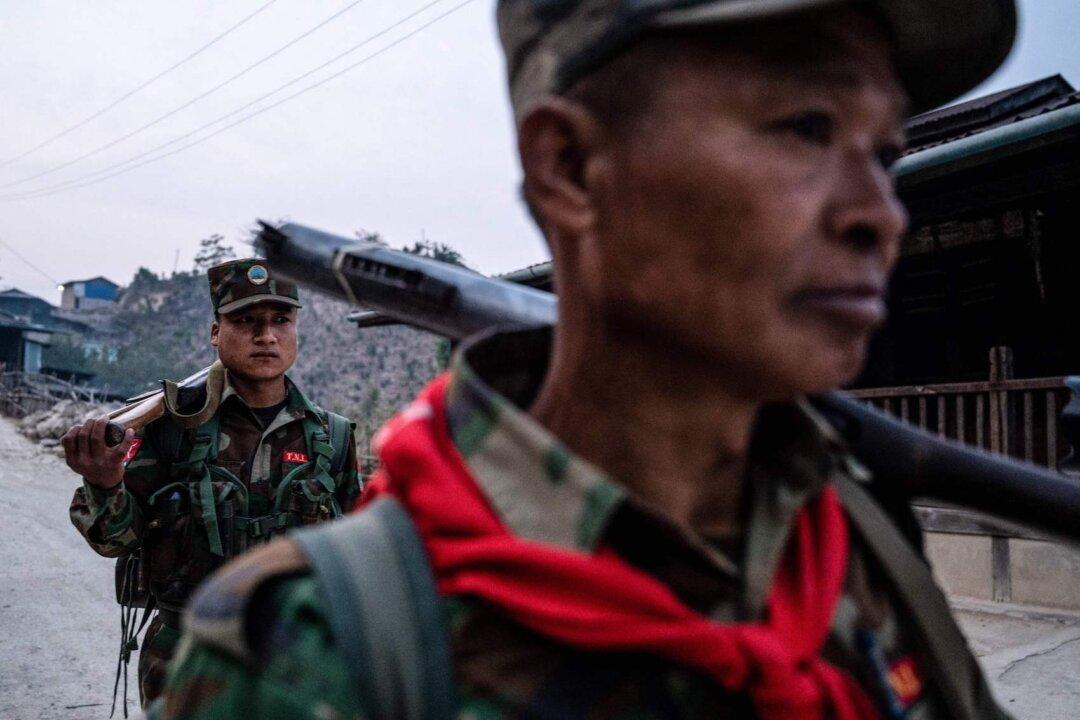Ethnic armed groups in Burma (also known as Myanmar) that make up the Three Brotherhood Alliance have been on the offensive against junta forces in the country’s north-east Shan State since Oct. 27.
The alliance—made up of the Myanmar National Democratic Alliance Army (MNDAA), Ta’ang National Liberation Army (TNLA), and Arakan Army (AA)—has captured more than 100 strongholds from the junta’s armed forces known as the Tatmadaw in the Shan State region of the Kokang Self-Administered Zone that borders China.





